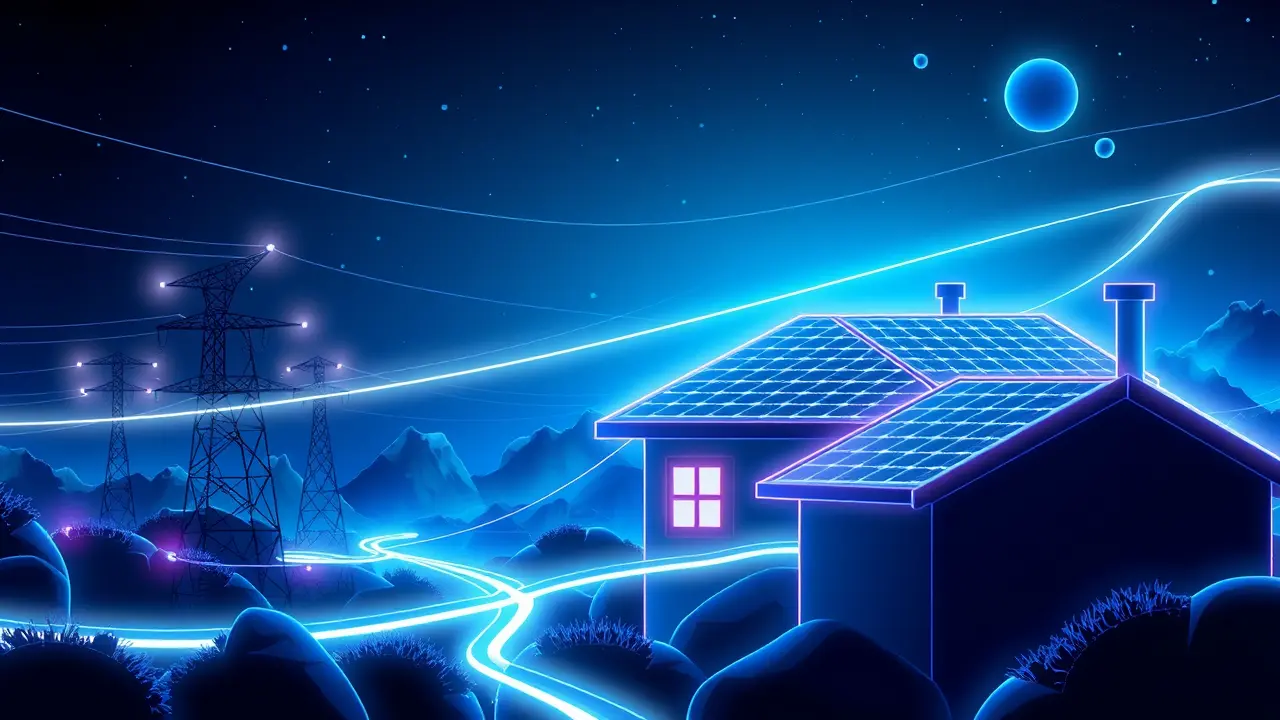Daylight Raises $75M to Build Decentralized Energy Network
The energy sector, a bastion of traditional finance and centralized control for over a century, is facing a decentralized challenger that just secured a staggering war chest. Daylight, a startup with the ambitious goal of building a peer-to-peer energy network, has successfully raised $75 million in a Series B funding round, a monumental vote of confidence that signals a potential paradigm shift is afoot.This isn't merely about installing more solar panels; it's about rewiring the entire economic and operational fabric of how energy is produced, distributed, and monetized, effectively applying the core principles of decentralized finance to the physical world. Imagine a future where your neighbor with rooftop solar isn't just saving on their own bill but is actively trading excess kilowatts directly with you through a transparent, automated marketplace, cutting out the legacy utility middleman.This is the vision Daylight is betting on, and this massive capital infusion, led by prominent venture firms like Union Square Ventures and joined by several crypto-native funds, provides the rocket fuel to scale their blockchain-based platform from a promising pilot to a mainstream alternative. The underlying technology likely leverages smart contracts on a scalable blockchain, perhaps a proof-of-stake network like Ethereum or a specialized energy-centric chain, to facilitate these micro-transactions with immutable settlement, ensuring that a prosumer in Arizona gets instantly and transparently paid for the power they send to a consumer in Texas.This model directly challenges the centralized utility monopolies that have long dictated rates and controlled infrastructure, offering a path toward true energy democracy and resilience, especially in regions plagued by grid instability or exorbitant costs. However, the path is fraught with regulatory thickets; every public utility commission across the country represents a potential battleground where incumbent players will lobby fiercely to protect their turf, arguing about grid reliability, safety standards, and fair cost allocation for maintaining the backbone transmission lines that a decentralized network still partially relies upon.Furthermore, the technological hurdles of creating a seamless, real-time balancing mechanism that can handle the intermittency of renewable sources like solar and wind at a massive scale are non-trivial, requiring sophisticated algorithms and robust IoT integration in smart meters and inverters. From a TradFi perspective, this movement, known as the 'Energy Web,' could begin to tokenize real-world assets, transforming power plants, battery storage facilities, and even individual solar arrays into investable digital tokens, unlocking liquidity and democratizing investment in critical infrastructure.The $75 million will undoubtedly be allocated toward aggressive talent acquisition, regulatory lobbying efforts, and forging partnerships with forward-thinking municipal utilities and large-scale commercial energy users who are eager to hedge against volatile wholesale prices. This funding round echoes the early days of DeFi summer, where a compelling idea about disintermediating traditional finance attracted billions in speculative capital, but with a crucial difference: Daylight is building a bridge between the digital promise of blockchain and the tangible, physical necessity of electricity, a convergence that, if successful, could fundamentally reshape one of the largest and most critical industries on the planet, creating a more efficient, transparent, and participatory energy economy for everyone.
JA
Jamie Larson123k16 minutes ago
this makes me want to build a local energy project with my neighbors tbh, imagine if we could all share power like this
0
